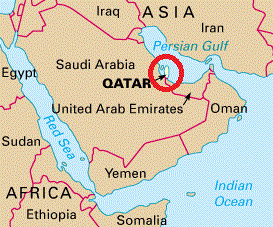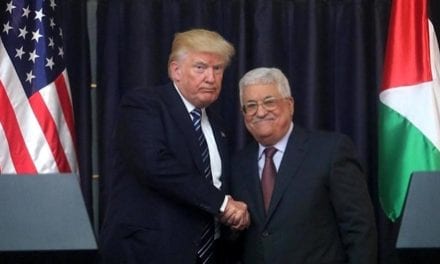By Valdai Club
In the conflict between Qatar and the Saudi-led coalition, which broke out this year, the United States is part of the problem, while Russia can become part of the solution, Valdai Club experts say.
The conflict between Qatar and the Gulf states coalition ended a long period of relative stability in the region, placing its states in the face of difficult challenges in terms of both security and domestic reforms. At the same time, it opens up opportunities for Russia to participate in the Gulf affairs as a mediator. Such conclusions were made by participants in the expert discussion, titled “The Gulf Crisis: Political Implications for the Middle East,” which was held at the Valdai Club Conference hall in Moscow on September 27.
The aggravation of contradictions between Qatar and Saudi Arabia with its allies did not surprise the Gulf experts, said Vladimir Akhmedov, Senior fellow at the Center for Contemporary Middle East problems with the Institute of Oriental Studies of the Russian Academy of Sciences. Over the past 50-60 years, conflict-related patterns have been prevalent in the region, but if during the Cold War the conflicts unfolded within a certain system, were extinguished and acquired a protracted character, recently they have come to the surface. ‘The Arab Spring’ raised conflicts from non-existence and added new conflict situations that overlapped past conflicts,” he said.
The ongoing Gulf crisis is caused by attempts of Saudi Arabia and its allies, the United Arab Emirates and Egypt, to change the balance of forces in the region, said Ibrahim Fraihat, Associate Professor at the Conflict Management and Humanitarian Action Program at the Doha Institute. He emphasized that the Trump administration sides with Saudi Arabia, but on the whole, there is no unity in the American establishment on this issue.
According to participants in the discussion, at the moment Saudi Arabia should be considered as a loser in this conflict. First, the unity of the Gulf Cooperation Council (GCC) has been broken. As Fraihat noted, Qatar, in the conditions of the blockade imposed by Riyadh, diversifies its economic ties, strengthening relations with both its neighbors Oman and Kuwait and non-Arab countries like Pakistan. “The crisis sent a wrong message to the GCC countries,” he stressed.
Second, the crisis highlighted the shortcomings of the internal political system of Saudi Arabia. There is a need for deep systemic reforms, but it is difficult to promote them painlessly, said Leonid Issaev, Senior Lecturer at the Department for Political Science of the Moscow-based Higher School of Economics. “The Vision-2030 program, proposed by Crown Prince Mohammed bin Salman, means the need to abandon the patriarchal clientele relations that have existed in the country for decades,” he said. “It is necessary to introduce a normal taxation system, to abandon the principle of the rentier state.” According to the scholar, the two most recent Saudi kings made attempts at reforms, but they did not succeed due to the resistance of society. Everything says that the country needs a leader who is ready to take responsibility for unpopular reforms. “Mohammed bin Salman is supposed to be the one, but there are big doubts that he will fit for the role,” Issayev said.
According to Fraihat, Iran is the biggest beneficiary of the crisis around Qatar, although it did not contribute to it. Alexander Maryasov, former Russian ambassador to Iran, agreed with him. He noted that in the recent years Iran has become much more pragmatic, realizing that “nothing can be achieved forcefully.” Export of the Islamic revolution is not among the foreign policy priorities of the current reformist government, but this does not mean that Iran will not exploit contradictions between the Arabs, Maryasov said.
The situation around Qatar may be an opportunity for Russia to boost its influence in the region traditionally dominated by the US, Fraihat said. “Now Russia can step in, support mediation, dialogue, peaceful resolution of the crisis,” he said. According to him, the United States is now part of the problem and Russia can become part of the solution. It is evident that Moscow realizes this, which, the Qatari expert said, is demonstrated by frequent meetings between high-ranking officials of Russia and the Gulf states.
According to Fraihat, Kuwait is an excellent mediator, but it lacks international power. “You need power to solve international conflicts,” he said. “It is easy to say ‘no’ to Kuwait, but it is more difficult to say ‘no’ to Russia or the United States.” Therefore, he said, it is crucial for Russia to support the Kuwaiti mediation, creating real pressure on the sides.
Fraihat believes that reconciliation between the GCC countries will be beneficial to Moscow. While pointing to Russia’s achievements in Syria – military successes and the effectiveness of the Astana talks, he stressed that Russia cannot win by “imposing a unilateral solution.” In order to reach a lasting agreement between Damascus and the Syrian opposition, “Arab support for the opposition must come from a unified Gulf,” he said. Restoring the unity of the Gulf states, which are openly sponsoring the opposition in Syria, should play, according to Fraihat, a key role.



















